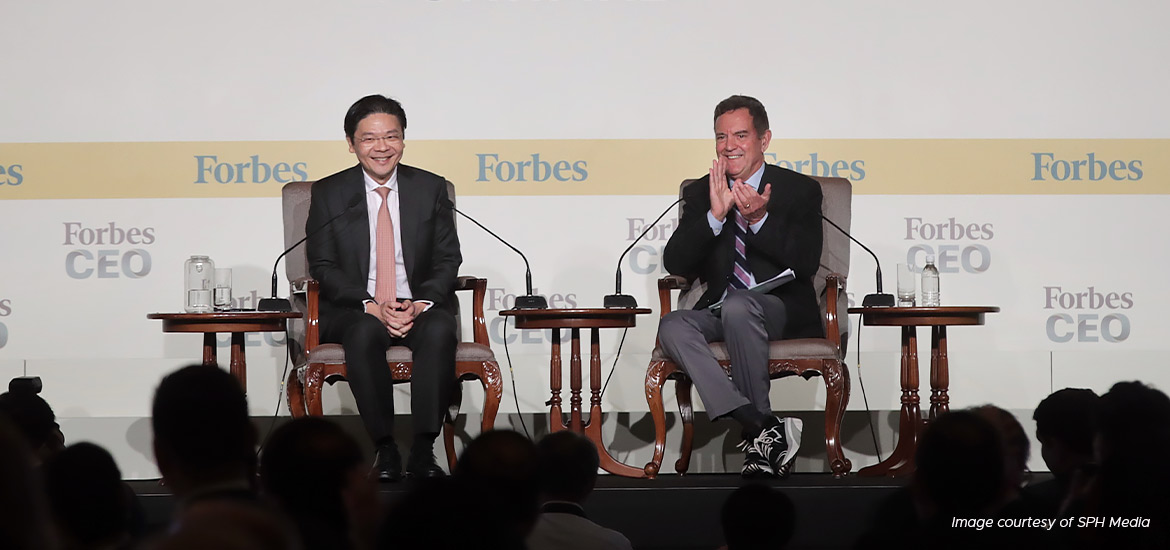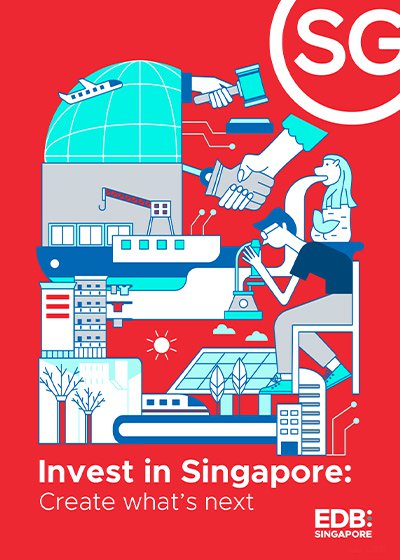He was speaking at an hour-long dialogue moderated by Mr Rich Karlgaard, editor-at-large at Forbes Media, during the Forbes Global CEO Conference at The Ritz-Carlton, Millenia Singapore hotel.
Themed The Way Forward, the conference - now in its 20th year - is expected to draw about 400 business leaders from around the world over two days.
Mr Wong, who is also Finance Minister, took questions from the audience that ranged from growing US-China tensions to strengthening intra-ASEAN trade and political succession in Singapore.
Asked by Mr Karlgaard about the challenges of navigating growing tensions between the US and China, Mr Wong said the relationship is the most consequential one in the world, shaping the tone of global affairs.
"Unfortunately, relations are worsening... The countries are divided on many issues, ranging from different rival ideologies to systems of government, and now more recently sharply escalating tensions over Taiwan."
The fortunate thing is that leaders on both sides do not want direct confrontation because they know much is at stake, said Mr Wong, although there could be accidents and miscalculations.
Singapore is friends with both the US and China, and has been encouraging both sides to keep open lines of communication, especially at the highest levels, he added.
It is a positive sign that leaders on both sides have had a virtual meeting recently, and they have agreed to meet face to face soon, he noted.
"So we hope with that... ability to come together to meet in person, there will be an ability to establish a new modus vivendi... recognising that the world is big enough for the US and China to coexist, and the two countries do not have to define their relationship in adversarial terms."
On trade, Mr Wong said Singapore's philosophy is that it wants all the major powers to have stakes in ASEAN.
"And that's why we tell our friends in both America and China: Engage the region more constructively and comprehensively, and engage the region on its own merits, not through the prism of a US-China relationship or competition," he said.
While the recently launched Indo-Pacific Economic Framework for Prosperity led by the US does not offer market access, it still has "a lot of substance", said Mr Wong.
"We hope that this would be one platform which would allow America to engage the region more comprehensively. And the key is to make sure that this continues through different administrations."
On de-globalisation, Mr Wong said that whereas in the past, companies were prepared to buy the cheapest available, now they do not mind paying a little bit more for greater resilience.
"Previously, the logic was countries do not have to be friends to do business with one another - in fact the hope was that the more we trade and invest in each other, we will tamp down geopolitical rivalry," he said.
But now, geopolitics is shaping trade and investments, and the "golden age of globalisation" of the last 30 years since the end of the Cold War has ended, said Mr Wong.
However global supply chains get reconfigured, Singapore wants to remain a key node, he said. A key prerequisite is that it must always maintain reliability, and have the confidence and trust of businesses.
That is why at the height of the pandemic, when Singapore was short of supplies like other countries, "we never contemplated export control measures", he said.









